Standard Operating Procedure by Philip Gourevitch '83 and Errol Morris (Penguin)
Standard Operating Procedure by Philip Gourevitch '83 and Errol Morris (Penguin)
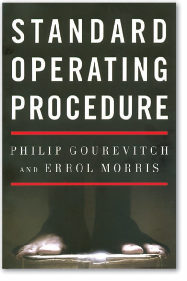 Based on hundreds of hours of interviews conducted for the documentary film of the same title, the book describes the experience of soldiers stationed at Abu Ghraib prison and how their mission went terribly wrong. "It is almost as much a cause for national pride as it is for despair that some American soldiers didn't seem to understand, or to care, that they were supposed to be keeping their diabolical assignment a secret, that they never fully accepted the guilty code of omertà that comes naturally to those who are truly and self-consciously corrupt," say the authors. "They never entirely lost sight of the absurdity and insanity of their position."
Based on hundreds of hours of interviews conducted for the documentary film of the same title, the book describes the experience of soldiers stationed at Abu Ghraib prison and how their mission went terribly wrong. "It is almost as much a cause for national pride as it is for despair that some American soldiers didn't seem to understand, or to care, that they were supposed to be keeping their diabolical assignment a secret, that they never fully accepted the guilty code of omertà that comes naturally to those who are truly and self-consciously corrupt," say the authors. "They never entirely lost sight of the absurdity and insanity of their position."
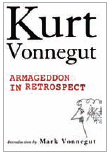
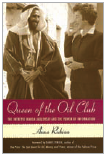
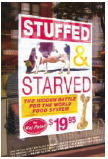
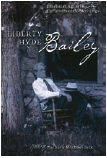
Armageddon in Retrospect by Kurt Vonnegut '44 (Putnam). "When does all the hate end?" asks Vonnegut in this posthumous collection that revolves around the theme of war. These previously unpublished stories, essays, and cartoons include a harrowing reminiscence of his experiences as a prisoner of war during the firebombing of Dresden and a speech that he meant to deliver before his death. "Writing was a spiritual exercise for my father, the only thing he really believed in," writes Vonnegut's son Mark. "He wanted to get things right but never thought that his writing was going to have much effect on the course of things."
Queen of the Oil Club by Anna Rubino (Beacon). Wanda Jablonski '42 was once the most powerful woman in the male-dominated world of oil, and her career offers insights into the formative years of American involvement in the Middle East. As publisher of Petroleum Intelligence Weekly, Jablonski chronicled and helped shape the post-war oil industry. Writes Rubino, an investigative reporter for Off The Record Research, "Her story is also a primer on the recent history of oil, reminding us how the quest for stable sources of oil became critical to American security, and how nascent nationalism in the Fifties led oil states to use petroleum as a political tool."
Stuffed and Starved by Raj Patel, PhD '02 (Melville House). More people go hungry than ever before, while even more people are overweight. Patel, a former policy analyst for Food First, shows that global hunger and obesity are symptoms of the same problem, and argues that eradicating world hunger can also prevent epidemics of diabetes and heart disease. He examines how the world food system is shaped by farmers, governments, corporations, consumers, and activists, and suggests ways for people to become more than just consumers and alter "the relations of power that exploit people both in growing, and in eating."
Liberty Hyde Bailey edited by Zachary Michael Jack (Cornell). Legendary Ag college professor Bailey left his mark on horticulture, botany, education, and rural sociology; wrote more than sixty books; worked to improve the lives of farmers; and helped build the intellectual foundations of the environmental movement. As a scientist writing in the tradition of naturalists John Muir and John Burroughs, he stressed the importance of humanity's place within, and not apart from, the natural world. This anthology, published on the hundredth anniversary of Bailey's landmark Report of the Country Life Commission, presents selections from ten of his most influential books on agrarian and environmental matters.
Recently Published
Fiction
One More Year by Sana Krasikov '01 (Spiegel & Grau). Krasikov, a former CAM intern and graduate of the Iowa Writers' Workshop, belongs to a generation of Russian-American authors who are at home in two cultures, yet able to maintain an ironic distance from both. In her debut short story collection, she captures the lives of immigrants from the former Soviet Union who suffer from a sense of estrangement as they attempt to create new lives in the United States.
March Toward the Thunder by Joseph Bruchac '64 (Dial). Fifteen-year-old Louis Nolette, an Abenaki Indian from Canada, signs up with the Union Army's Irish Brigade in 1864 and marches south to fight in Virginia. Lured by the promise of good pay and the chance to defeat slavery, Louis discovers that war is a dirty business. Bruchac based the story on the experiences of his great-grandfather, Louis Bowman, who fought in some of the Civil War's bloodiest battles.
Jack with a Twist by Brenda Janowitz '95 (Red Dress Ink). Brooke Miller lands a celebrity divorce case while she's planning her wedding and then discovers that her fiancé, Jack, is the opposing attorney. Soon Jack resorts to legal trickery, and Brooke begins to wonder if she's chosen the right man. In her second novel, Janowitz juggles comic reversals with a Hepburn/Tracy-style battle of the sexes.
Nonfiction
African Americans in Congress by Eric Freedman '71 and Stephen A. Jones (CQ). This documentary history tells the stories of notable African American members of Congress, including Hiram R. Revels, the first African American senator; Shirley Chisholm, the first black woman to serve in Congress; Charles Rangel, a founding member of the Congressional Black Caucus; and presidential candidate Sen. Barack Obama. Thematic chapters also cover the debates over slavery, the civil rights movement, and the struggle for economic justice.
Policing the Globe by Peter Andreas, PhD '99, and Ethan Nadelmann (Oxford). Transnational crime is a growing problem in this era of globalization. Andreas, an associate professor of political science and international studies at Brown, and Nadelmann, the executive director of the Drug Policy Alliance, focus on the increased number of global prohibitions, cross-border crime control in Western Europe, and the rise of the United States as the world's most aggressive policing power.


